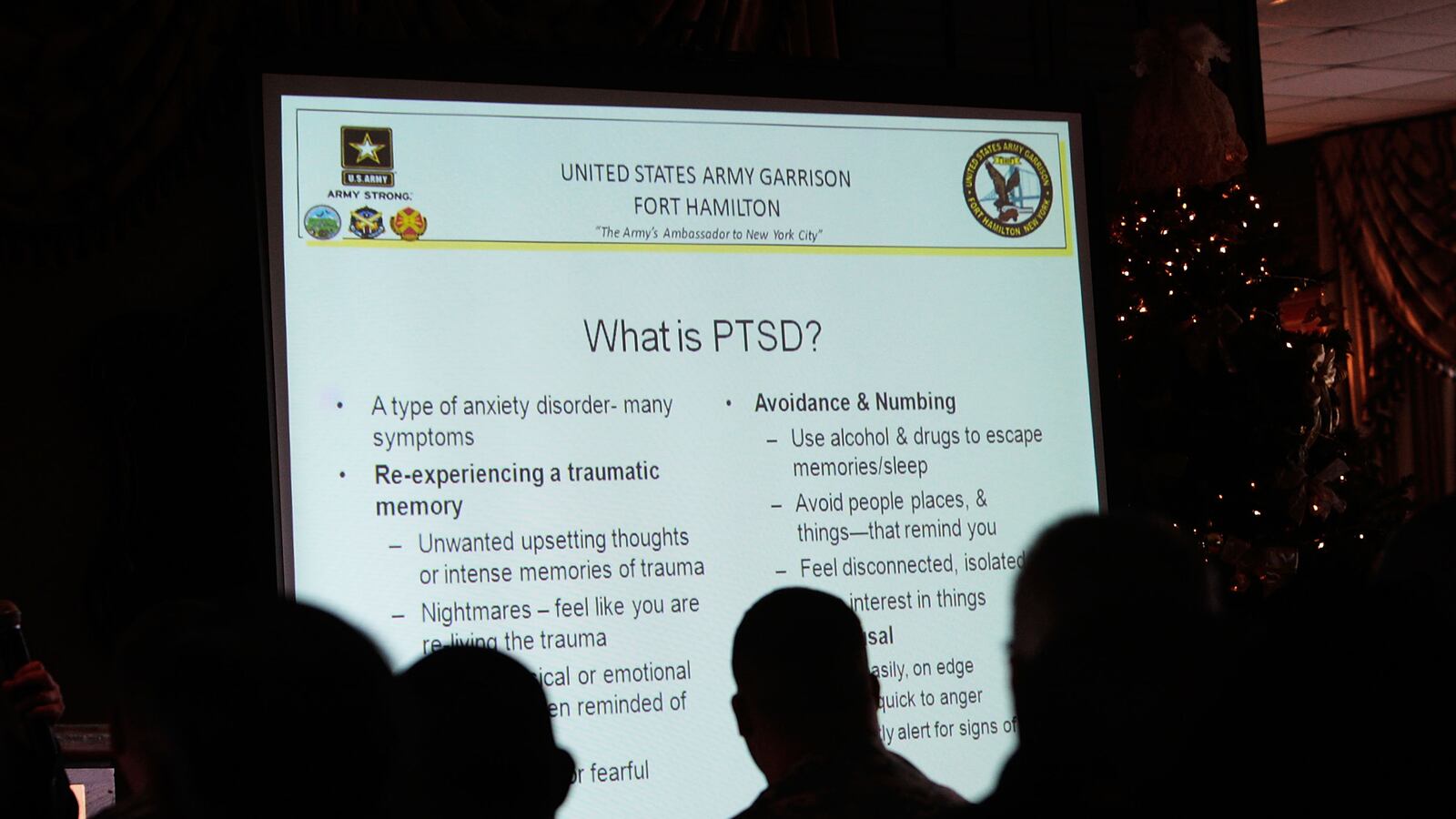According to a report (PDF) released by the U.S. Department of Veterans Affairs earlier this year, an estimated 22 veterans committed suicide in America each day in 2010. U.S. Army soldier suicides outnumbered combat-related deaths in 2012. And 30 percent of Iraq and Afghanistan Veterans of America survey respondents have considered taking their own life.

Those are the numbers, and numbers have a way of numbing us to the complexities that make up everyday life. What drives these battle-hardened men and women to the breaking point? Why do some people return home from combat ready and able to transition back to civilian life, while others cannot, despite their best efforts? How does suicide in the ranks continue to mystify the much-vaunted and ever-powerful U.S. military?
These are but a few of the questions explored in David Finkel’s penetrating but painful Thank You For Your Service. This book is a loose continuation of Finkel’s critically-celebrated 2009 The Good Soldiers, where he followed an infantry battalion through a fierce Baghdad neighborhood during the Surge. Thank You For Your Service follows some of those same soldiers home to Fort Riley, Kansas.
“If war is accidental,” Finkel writes, “so is what happens afterward.” The Washington Post reporter utilizes a mosaic technique to form a wide-view of the “after-war” and its effects on the most badly damaged of those who fought it. From the basement of a tiny town in Kansas, where a wife begs her husband to take the shotgun out of his mouth, to a large brick house in Washington D.C. where a general’s staff absurdly debates menu options for a “Suicide Prevention” dinner, Finkel interweaves the lives and stories of a variety of people trying, desperately, to find peace.
The narrative focuses on Adam Schumann, a former Army sergeant and three-time combat veteran, and his wife Saskia, a Dakota twenty-something and mother of two young children. Adam’s transition home from war has proven fraught with difficulty, something no amount of pills or VA appointments are able to cure. Though initially sympathetic to Adam’s anger-management struggles, depression, and recurring memory issues, Saskia becomes increasingly frustrated with her husband as his spiral into the figurative abyss continues. Often paying the bills and dealing with childcare alone, Saskia asks herself early in the book “How much can you pity a person who cannot help himself?” Or, as another wife of a traumatized veteran puts it later: “Could she tell him that soldiers aren’t the only people who have nightmares? Was he ready to hear that?”
As Adam and Saskia struggle to keep their family together, we’re introduced to an array of people around them who are fighting their own after-war battles: Tausolo Aieti, a gentle soldier from American Samoa arrested for domestic assault; Patti Walker, a soldier family advocate at Fort Riley and military wife whose war never ends, be it at home or at work; Shawnee Hoffman, a young widow who had to cut the rope her husband had hung himself with while their baby slept upstairs; and others, too many others, haunted by a sniper’s shot in Mosul or a piece of glinting metal in Kandahar that still echo years later and thousands of miles away.
The title Thank You For Your Service is at once ferociously ironic—an indictment of the vast majority of American society whose sole relation to 12 years of war has been that phrase—and disturbingly sincere. “What is there to say at this point,” asks a eulogist of a 21-year old soldier who killed himself in the barracks, “except thank you for your service?” Finkel hammers home the dark reality that veterans of Iraq and Afghanistan have to find their own ways in America, beyond the support structures, beyond the multitudes of good people trying to help—or they won’t find a way home at all.
There is an unsettling aspect of trauma voyeurism to Thank You For Your Service. We read about crumbling marriages, disintegrating minds, dropped babies, something that can become suffocating if not taken in doses. Further, outside of a passing acknowledgement that the people profiled represent a small percentage of the military community, it’d be easy for a lay reader to come to the conclusion that every new veteran and their family members are ticking time bombs. As an Iraq vet myself, I am concerned that the narrative reinforces preconceived notions about veterans and military service in the wider culture, and not in a constructive way. But while I may have longed for a chapter on the former infantryman excelling in chemistry at Kansas State, or the former engineer founding her own logistics business in Topeka, that’s beside the point of Finkel’s book. This is ground level reporting at its most important, at its most clarion. If it feels overwhelming, it’s because it’s tearing apart layers of comfort and cliché for the sake of truth.
The eulogist’s question is never provided in a tidy answer, which is appropriate. Tidy messages and tidy endings don’t exist in after-wars, something Finkel’s book makes all too clear. Even after a stay at a veterans’ rehabilitation facility, the story of Adam and Saskia and their family is open-ended and foreboding. Again, the eulogist’s question lingers. Certainly not for the last time, either, even if the Adams of the world deserve an answer—and perhaps, a better question.






